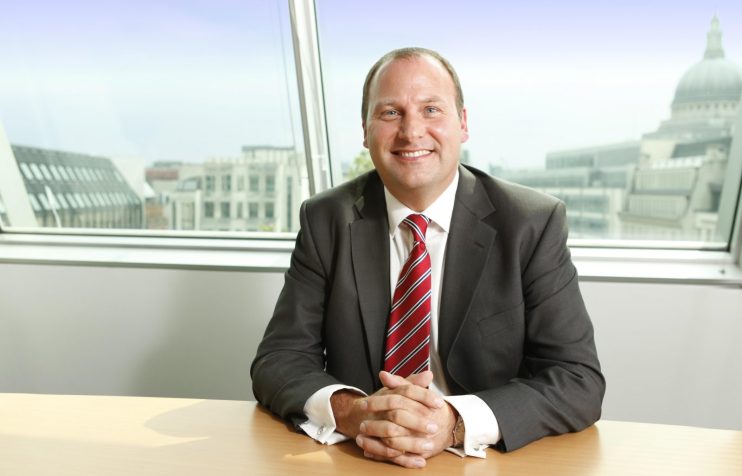
Working capital for the capital: an interview with Lloyds Bank Commercial Banking’s SME London regional director, Paul Evans

BBLS. CBILS. Furlough. Lockdown. ‘You’re on mute…’. Just some of the acronyms, words and expressions that have dominated 2020.
“A very unusual year in every context” is how Paul Evans, Lloyds Bank Commercial Banking’s long-serving SME (small and medium-sized enterprise) London regional director, reflects on an unprecedented 12 months.
Evans has been with Lloyds Bank for more than 35 years, so has worked through what he describes as a “range of economic conditions”, including the global financial crisis of more than a decade ago. But the business and banking landscape has changed – and continues to change – beyond recognition as Covid-19 continues to create uncertainty.
“This crisis isn’t just about the here and now it’s the legacy it will bring,” says the 55-year-old, interviewed (by videocall) from his home in the south-east borough of Bexley.
Evans’ role is to work with SMEs and mid-corporate businesses, which he calls the “backbone” of the economy. At Lloyds Bank, his team has responsibility for around 15,000 businesses, whose turnover is typically between £3m and £25m.
Confidence of firms in the capital rose during November, most likely buoyed by positive news about Covid-19 vaccines, according to Lloyd Bank’s latest Business Barometer. But the bank’s data also showed that 23 per cent of businesses are expected to reduce their staff over the coming year, up by three points from the previous month. It remains a very fragile situation.
‘Businesses are constantly having to adapt’
Evans and his 80-strong team support clients as they try to understand and adapt to this unpredictable, highly challenging environment.
Nationally, Lloyds Bank has so far helped around 285,000 businesses during the pandemic in conjunction with the government Covid-19 financial support programmes.
On his team’s support of London firms, Evans says, “we’ve backed hundreds of businesses to navigate the ongoing disruption, and have been proactive in ensuring clients are always aware of what facilities are out there,” recalling that “products were evolving almost overnight” as the first national lockdown was introduced.
“We have worked tirelessly with the government on how these schemes can best work for clients and ensure the tools in our kitbag are appropriate for the situation we are facing,” he says.
“Businesses are constantly having to adapt to lockdown, partial lockdown and so on. But decisions on tiers are not taken lightly.”
Gunning for the capital’s businesses
An Arsenal season-ticket holder and Gunners fan since his first visit to the old Highbury in the late 1970s, Evans is proud of the companies on his turf that Lloyds Bank has been able to help.
Examples include ES Global, an events business that received a multi-million pound working capital facility; Harrow-headquartered Harold Benjamin Solicitors, a long-standing client that received a £500,000 CBILS loan; and Covent Garden-based Ena Salon, which re-opened for business in July with the support of a £200,000 CBILS loan after furloughing its 50-strong team back in March.
He talks passionately, too, about how Lloyds Bank can help firms to explore new product lines. Ena Salon, for example, has diversified with a digital training platform, while he mentions a stationery supplier switching from staples to hand-sanitiser and a furniture company moving into home-office equipment.
Evans is in conversation with City AM as the latest Brexit talks reach a critical stage – an element of uncertainty that pre-dates Covid-19. “Yes, before the ‘C’ word there was the ‘B’ word, it’s never gone away,” he says. “We have been working with firms to signpost them to government websites and make sure they are aware of the potential impact. Some are ‘on it’ and have, for example, sourced a secondary supplier ‘just in case’. There are others who are less prepared but seem to believe it will come good.”
As Lloyds Bank continues to steer clients through the turbulence, what’s uppermost in his mind? “The one recommendation we have is about working capital. We are starting to see customers coming to us who are looking to expand and looking for some support,” he says, with an eye on the green shoots of post-Covid recovery.
“As firms start generating new contracts, they need raw materials, maybe extra staff and working capital. That could be overdrafts, invoice discounting, asset finance – a range of different products,” he says. “We want firms who are growing to be in the strongest position possible and that means having great working capital.”
Interested to read more about Lloyds Banking Group? City AM recently interviewed Ed Thurman, the group’s ambassador for the capital: ‘Standing up for the recovery: an interview with Lloyds Banking Group’s London ambassador’; & covered a London-focused roundtable held as part of Lloyds Banking Group’s UK-wide ‘The Big Conversation: Helping Britain Recover’ series of virtual events: Building consensus on London’s housing priorities.